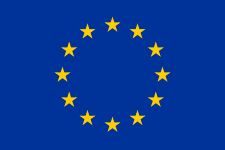JHEP
Presentation
JHEP is the Coordination Action supporting the Joint Programming Initiative (JPI) on « Cultural Heritage and Global Change: a new challenge for Europe ». The 36 month-Project involved 10 Partners, all key ministries or agencies within their national systems, and started in January 2011.
JHEP intended to structure and support the JPI CH to implement the Action Programme for research on cultural heritage in a changing world, through improved coordination of the various stakeholders dealing with cultural heritage, including SMEs, heritage owners, public administrations, research partners, and local communities.
The main objectives of JHEP were, therefore:
- Providing necessary administrative and logistical support to the meetings of the Governing Board, Executive Board, Scientific Committee and Advisory Board required for the development and implementation of the SRA and Action Programme;
- Defining the strategic and scientific priorities to develop the scientific research agenda;
- Implementing joint and coordinated research activities;
- Extending the partnership and cooperation networks at a global level, with international and NGOs;
- Evaluating and monitoring the joint activities;
- Involving stakeholders through a communication plan to ensure the translation of research outputs into practice and policy
Contact
Participants
WP1: Management and Coordination
WP2: Development and elaboration of the Strategic research Agenda
WP3: Implementation of Joint Programming Initiative
WP4: Extending the partnership and cooperation
WP5: Monitoring and evaluating the JPI
WP6: Dissemination and communication
Heritage Plus
Presentation
Heritage Plus is an Era-Net plus action which supports the JPI CH by proposing concrete solutions for pooling national expertise and resources and establishing closer and robust collaboration among the participating States in the field of cultural heritage. The 60 month-Project involves 18 Programme Owners and Programme Managers all committed to participate with a budget for the Joint Call and resources for the coordination work. The Project started in October 2013.
The Heritage Plus action intends improving the coordination of national research and policies in the domain of cultural heritage. The main objective of the Heritage Plus proposal is to pool the necessary financial resources from the participating national programmes and the European Community and to launch a single Joint Call for Proposals for research projects in the cultural heritage field that will be evaluated and managed jointly by this JPI Members.
The Heritage Plus project is fully in line with the JPI CH as part of the implementation of the Strategic Research Agenda ( SRA) and of the Action Programme.
Consequently, the Heritage Plus call launched in 2013 was designed to fund transnational, interdisciplinary, innovative R&D projects focussed on topics such as tangible cultural heritage, developing new methodologies, technologies and products for the assessment, protection and management of historical and modern arte-facts, buildings and sites, while not excluding interlinked aspects of digital and intangible heritage, following the interdisciplinary basic criteria on which the JPI CH SRA devolved.
This collaborative approach provides a better use of public resources, while the European Community contribution to the Joint Call budget stresses the high interest generated by this common action. Furthermore, the value added of Heritage Plus rests on its final outcome that is narrowing the gap between research and the implementation of the resulting knowledge to solve problems related to the assessment, protection and management of cultural heritage. This means that new innovative ideas which can be transferred to public and private stakeholders and exploited in high value tools applied over the short to mid-term (max 2 years from the end of the project) are prioritised.
Contact
Participants
WP1: Coordination and management
WP2: Preparation of the Joint Call
WP4: Project monitoring and impact assessment
JHEP 2
Presentation
JHEP2 – « Support to the implementation of the Strategic Research Agenda (SRA) of the Joint Programming Initiative on Cultural Heritage and Global Change (JPI CH) » is a 48 month-Project within Horizon 2020 framework involving 16 JPI CH Partners. It started in January 2016.
JHEP2 intends to support the implementation of the Strategic Research Agenda following the recommendations emerging from the High level Group for Joint Programming (GPC) in the Biennial Report 2014 and in the Report on « Alignment in the context of Joint Programming », which specifically address the recommendation to develop the alignment of national research and innovation programmes and activities as well as the application of qualitative and quantitative Key Performance Indicators (KPIs).
The main objectives addressed within the present proposal are:
- To develop effective and efficient governance of the alignment of the national research and innovation programmes: This objective will be achieved in WP1 by: i) providing an overview of national research programmes and activities relevant to Cultural Heritage with reference to the SRA priorities, ii) identifying best practices on alignment, organization, policy initiatives as well as policy instruments; iii) actively promoting the implementation of alignment of the national research programmes and activities relevant to Cultural Heritage among all Participants.
- To reinforce common activities on cultural heritage: This objective will be achieved in WP2 through the setting up of a coherent set of joint activities combining the research priorities of SRA, the enabling framework, the AP and the recommendations of the Horizon 2020 Expert Group on Cultural Heritage.
- To apply quantitative and qualitative key performance indicators (KPIs) for monitoring an assessing the JPICH alignment process: This objective will be achieved in WP3 by: i) applying adequate indicators identified in the first CSA JHEP methodology, in order to monitor JPI CH research activities within the alignment process (i.e. networking, calls, mobility, infrastructures, etc.); ii) identifying and applying additional key performance indicators (KPIs) to monitor the alignment of national research programmes as it evolves.



